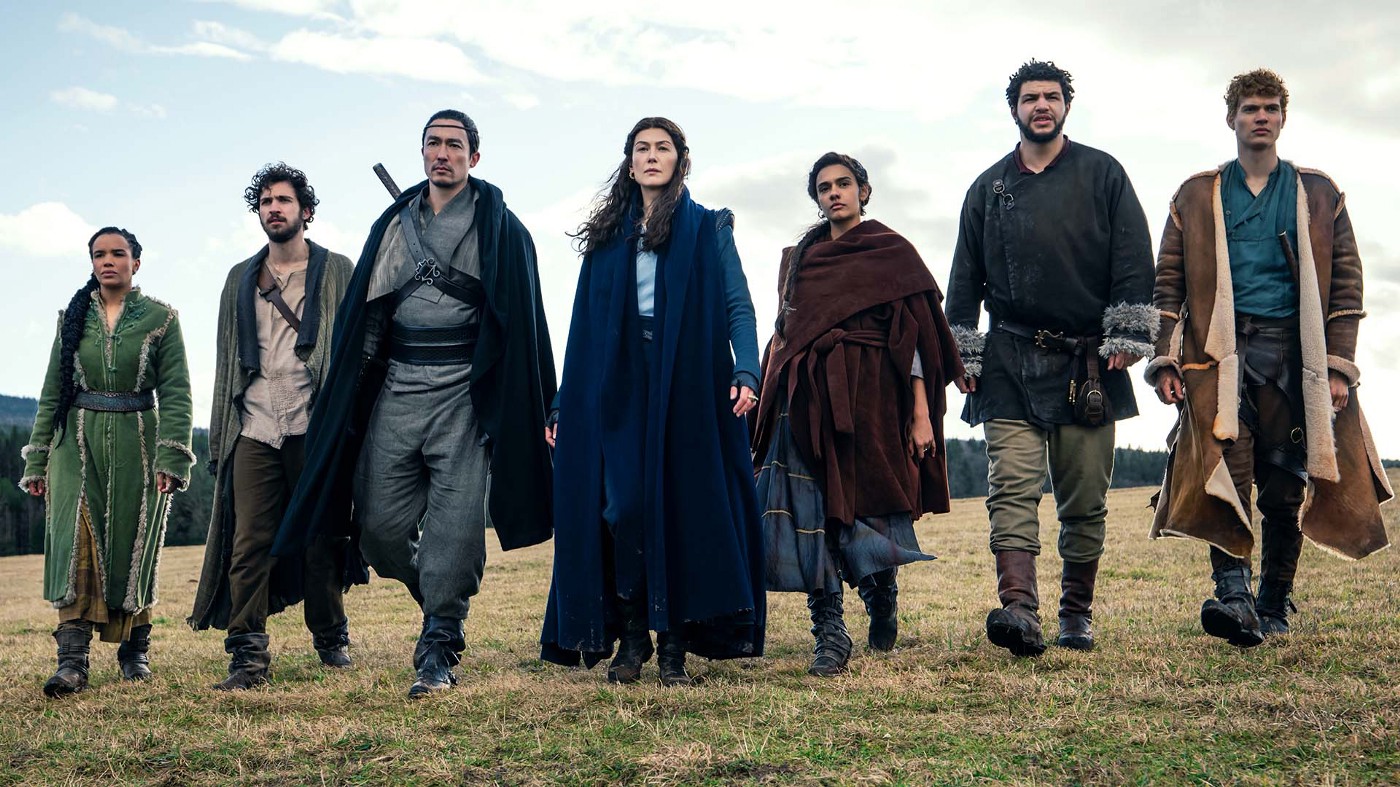Get your free daily journal prompts template in Notion.
Stay organized, save time, and start writing now.
You'll be redirected to Gumroad to download.
Some Thoughts on the “Wheel of Time” Amazon Adaptation
I had never heard of Robert Jordan’s Wheel of Time series until I was teaching writing at a community college.
An ambitious long-haired high school male was taking my classes for extra credit.
“Can I do an essay on this?” and he slams down a huge copy of Wheel of Time. “It’s fantasy,” he meekly added.
I let him do the report on the book, and honestly, I haven’t thought much about Wheel of Time since. I didn’t get interested in the book, I’m not really into fantasy, and the length of it didn’t exactly invite me in.
Amazon bought Wheel of Time a few years ago to essentially be their “Game of Thrones,” another huge epic fantasy series I’ve never read.
The “Wheel of Time” news received less fanfare than Amazon’s other big purchase: a Lord of the Rings TV show.
As if a 4(?) movie series wasn’t enough for us.
What’s Missing in These Epic TV Adaptations
So we have Lord of The Rings.
Wheel of Time.
And others like Outlander that are an equally absurdist fantasy, but not quite as long.
But I thin there’s a key part missing in a lot of these things.
Books are books for a reason.
Films and television are not the superior medium for every story. Not every story should be filmed. And these books, including Wheel of Time will push television farther than it needs to go.
This piece in GQ illustrates that really well. Zach Baron — one of the top magazine writers going right now — talks about how successs on one these hows is sliding through the mud for eight years in Western Europe. Not even in LA or the United States where most of the actors are from.
Far from families and friends, their lives are devoted to this show.
They’ve already filmed two seasons without it premiering yet. The showrunner is doing 100-hour workweeks.
He’s working more than Robert Jordan probably ever did. And that’s kind of the point.
His worlds are hard to film. Their “fantastical” and big with lots of complex ideas and plots. It’s much simpler to imagine these things and write them down instead of creating towns that you then have to burn down for only a few scenes.
Writing is easier than filming (though still hard!) and has the potential to supersede visuals and go beyond where TV can go.
Instead, the reader does the hard work — the imagination paints its own film.
Writers can take advantage of that and have taken advantage of that. Not even film can always beat it. Nor should it. Good written stories can still win a few.
The caveat to all this is that digital animation, 3D, and AI are quickly catching up. I’m okay with that. The lift will be easier and it will take storytelling to a different level.
I’m just not sure it’s worth it for traditional actors, craftspeople and the like to make this type of sacrifice.
But we’ll see.


